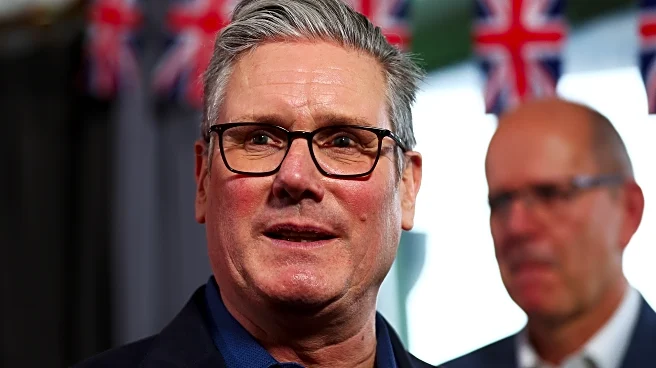What's Happening?
The General Medical Council (GMC) is investigating comments made by Dr. Aseem Malhotra, a British cardiologist, who linked COVID-19 vaccines to cancer in the royal family during a speech at Reform UK's conference. Dr. Malhotra, who is also an adviser to President Trump's health secretary, Robert F. Kennedy, has faced criticism from medical bodies for his remarks, which they describe as 'pseudo-science.' The GMC, responsible for maintaining professional standards in UK medicine, is considering whether to restrict Dr. Malhotra's ability to practice in the UK. His comments have been condemned by senior medics, including Dr. Jeanette Dickson, chair of the Academy of Medical Royal Colleges, and Dr. Tom Dolphin, chair of the British Medical Association, who warn that such statements could undermine public trust in vaccines and the medical profession.
Why It's Important?
The investigation into Dr. Malhotra's comments is significant as it highlights the ongoing challenges in combating misinformation about vaccines, which can have serious public health implications. The controversy underscores the delicate balance between free speech and the responsibility of medical professionals to provide evidence-based information. The potential impact on public trust in vaccines is particularly concerning, as it could lead to vaccine hesitancy and lower vaccination rates, ultimately affecting public health outcomes. The situation also reflects broader societal debates about the role of medical professionals in public discourse and the consequences of spreading unverified claims.
What's Next?
The GMC's decision on whether to take action against Dr. Malhotra could set a precedent for how similar cases are handled in the future. If the GMC decides to restrict his practice, it may deter other medical professionals from making unsubstantiated claims. The outcome of this investigation could also influence public perception of the medical profession and its commitment to evidence-based practice. Additionally, political and medical leaders may need to address the broader issue of misinformation and its impact on public health policy.
Beyond the Headlines
This case raises ethical questions about the responsibilities of medical professionals in public discourse and the potential consequences of their statements. It also highlights the tension between individual freedom of expression and the collective responsibility to protect public health. The investigation may prompt discussions about the need for stricter guidelines or oversight for medical professionals engaging in public debates, especially on sensitive topics like vaccines.











